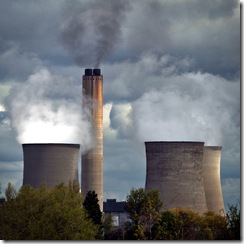James Randi, Global Warming and the Nature of Scepticism
 James Randi is a hero to many rational people around the world. He has done more than, perhaps, any person alive to promote rational and clear thinking about claims of the paranormal and alternative medicine. His million dollar challenge acts as a marvelous foil to mountebanks and charlatans. He simply says to them, “demonstrate what you claim, under controlled conditions, and the prize is yours.” This of course, leaves the proud boasters with nothing to do but attempt the futile, or resort to bluster and anger. Which makes them look deservedly silly.
James Randi is a hero to many rational people around the world. He has done more than, perhaps, any person alive to promote rational and clear thinking about claims of the paranormal and alternative medicine. His million dollar challenge acts as a marvelous foil to mountebanks and charlatans. He simply says to them, “demonstrate what you claim, under controlled conditions, and the prize is yours.” This of course, leaves the proud boasters with nothing to do but attempt the futile, or resort to bluster and anger. Which makes them look deservedly silly.
It was something of a shock then to see Randi write an article on his site that questioned the scientific consensus that man made activities are responsible for climate change and that dramatic intervention is required. Such views, we tend to think, are the preserve of the ‘denialist’, loon or vested interest. How could Randi do such thing?
Firstly, of course it is perfectly respectable to cast a skeptical eye over the apparent consensus of global warming. There are indeed undoubtedly inflated claims around, and we need to be on our guard. The activities of lobby groups, such as Greenpeace, have done much to damage the scientific credibility of the green agenda over the years. However, the science community has acted independently of these groups and the consensus has emerged from within rather than channeled and gilded by the usual environmental loud mouths.
However, it was not that Randi questioned the science so much, as that his article was full of so many quite obvious logical fallacies. The Master of Spotting a Phony Argument from a Hundred Paces appeared to fall for his own flawed rhetoric. He appeared to use, astonishingly, arguments from personal incredulity, and arguments from popularity. But, we must not be too harsh here, for there are very important differences between the style of Randi’s arguments and those of the more foaming end of the climate discussion. We see plenty of places in his argument where he lays forward his own lack of knowledge, low expertise and his undoubted capacity to be wrong. I do not believe for a moment that his mind is made up and that he is quite capable of receiving arguments that would show him he had “erred in coming to a certain conclusion”.
But this does leave us with a rather interesting question. How can we, as non experts, but sceptics, come to sound beliefs about areas where we do not have the training, experience and qualifications? Must we remain silent outside of our own fields, or are there reliable ways of coming to good conclusions? This is not an academic exercise as it is precisely what we are asking our politicians to do if we want them to act over issues like global warming.
Looking at Randi’s arguments, he appears to place significant weight on the fact that a group, the Petition Project, has created an online petition that has attracted “some 32,000 scientists, 9,000 of them PhDs” attacking the consensus position. Against this he weighs his distrust of academics who “are strongly influenced by the need to be accepted, to kowtow to peer opinion, and to “belong” in the scientific community.” Randi has previously made his contempt clear about many academics – and it is quite understandable. His exposing of Uri Geller was in the face of people with PhDs who had concluded he was for real. He was used by John Maddox of Nature to investigate the spurious homeopathic experiments of academic Jacques Benveniste. Indeed, as Ben Goldacre has so succinctly put it as his first law of bullshit dynamics: “There is no imaginable proposition so absurd that you cannot find at least one person, somewhere in the world, with a PhD or professional post, who is happy to endorse it.” His distrust of the academic is deep – and rightly so.
But that, of course, does not mean that all academics cannot be trusted and that all expertise is flawed. As Ben Goldacre might say, having a PhD is just a risk factor for being correct. Randi is faced with two camps, both who appear to contain plenty of academics. How do we decide who is the most credible?
The philosopher Bertand Russell wrote a very famous essay, On the Value of Scepticism, on just this problem. Russell too was concerned about how we should evaluate the opinion of experts when we have no direct understanding of their field. His basic ‘radical’ idea was that “that it is undesirable to believe a proposition when there is no ground whatever for supposing it true”. But he saw the problem was that we must on many occasions bow to the opinions of experts. How can we do that without falling foul of an appeal to authority – a basic no-no of any good sceptic?
He came up with the following rules of thumb:
The scepticism that I advocate amounts only to this:
(1) that when the experts are agreed, the opposite opinion cannot be held to be certain;
(2) that when they are not agreed, no opinion can be regarded as certain by a non-expert; and
(3) that when they all hold that no sufficient grounds for a positive opinion exist, the ordinary man would do well to suspend his judgment.
These propositions may seem mild, yet, if accepted, they would absolutely revolutionize human life.
The problem of who to believe has now shifted to one of how to recognise true expertise and how to understand the degree of unanimity between them. Perhaps, Randi’s mistake was to ignore the obvious expertise of climate scientists and to weigh too heavily the inferred ‘expertise’ of a group of ‘scientists’ some of whom just happened to have PhDs (in what, we do not know.)
For me, as a non climate scientist, I have to recognise that condition (1) appears to all intents and purposes to be fulfilled on the issue of climate change. When I hear people challenging the consensus, it is almost invariably from people who cannot truly be counted as experts. We are left with a few mavericks outside of the consensus and they do not look like enough to challenge position (1) to me.
Now, as with all rules of thumb, this does not mean that the experts are right. We still have to guarded and watch the scientific process as it gathers new data. It is quite possible for a consensus to be wrong. As sceptics, we must not drop our guard. But for now, it does indeed look as if we must accept that global warming is real and that we must act, given the very strong unanimity of experts in this field. Russell’s rules would compel us to accept that the challengers of the climate consensus cannot be treated as if they are right and that we should proceed (with due sceptical caution) with the experts.
And as sceptics, we must treat Russell’s rules with the full application of thought. Scepticism does not lend itself too well to rules of thumb as it is the exceptions that can catch us out. Should I accept the total consensus of homeopathic experts that their sugar pills are an amazing panacea? No of course not. I must think about what it means to be a ‘homeopathic expert’. Do these experts have coherent and consilient theory of what is happening? No. Do these experts have a reproducible and rigorous data set that shows a homeopathic effect? No. Homeopaths are pseudo-experts with few of the attributes of genuine experts. They lack academic credibility and look more like a group of similarly deluded individuals whose arguments cannot withstand a moment’s scrutiny.
For me, evaluating the claims of homeopaths, chiropractors and the like is useful because it provides a sandpit where we can learn how to spot flawed reasoning and faulty logic without getting too hurt. These skills are valuable in all walks of life; scientific, political and personal. But we must recognize that our sceptical ninja skills are most honed in our domains of comfort. As we step out of those zones, we have to be doubly on our guard that we are not succumbing to the same logical fallacies that we are so usually critical of.








53 comments